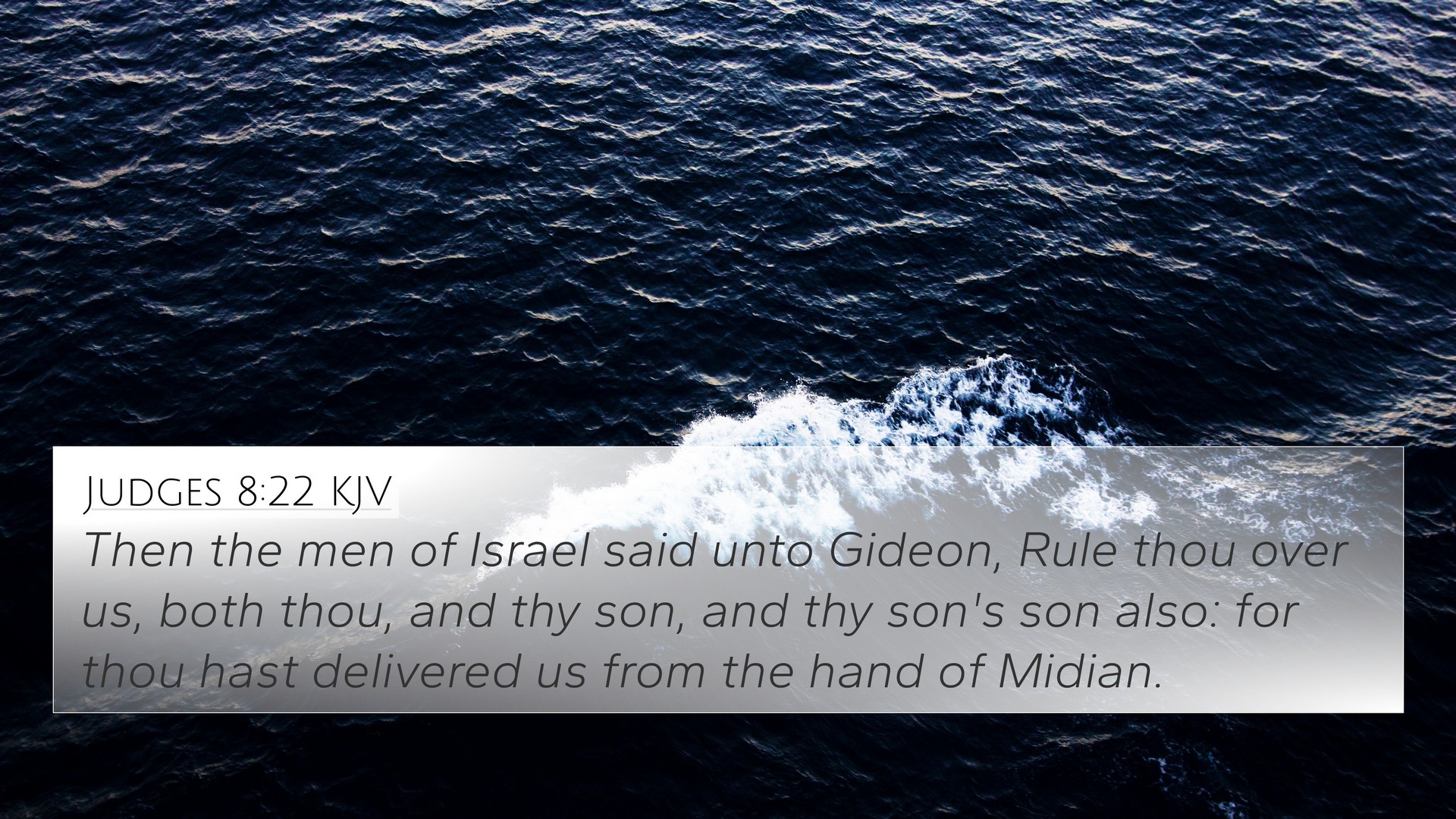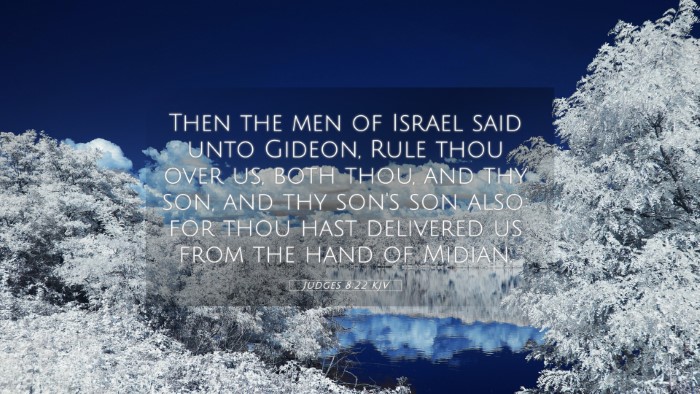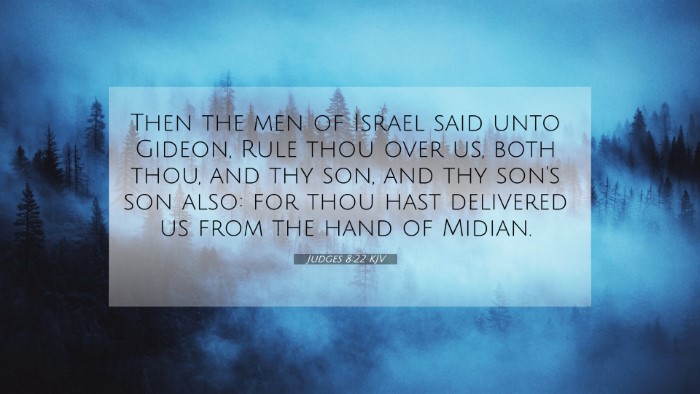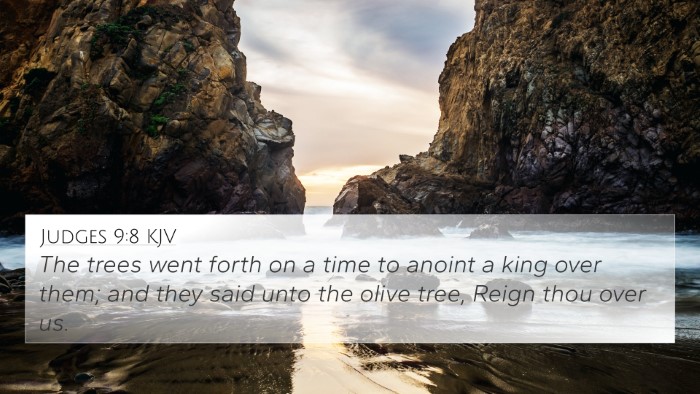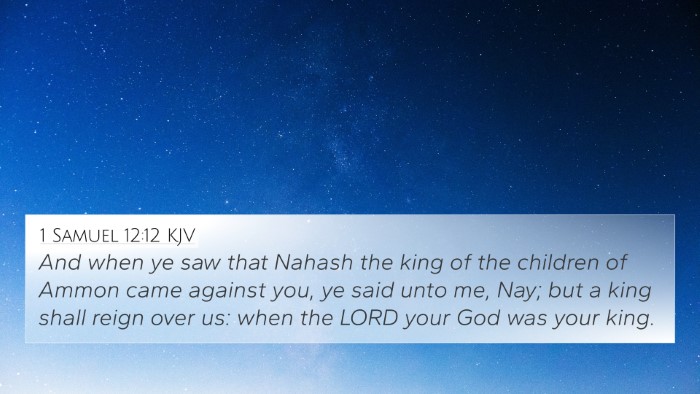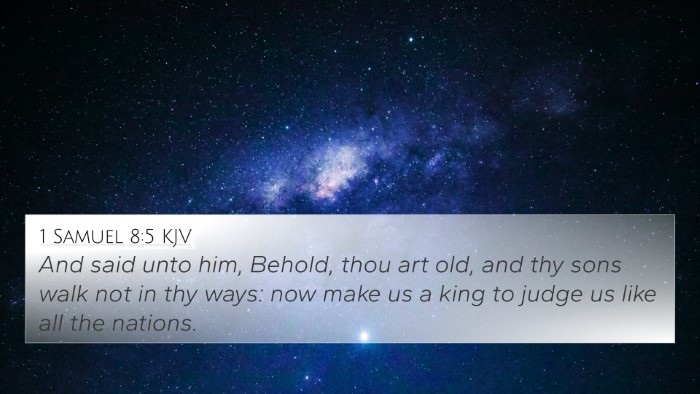Interpretation of Judges 8:22
Judges 8:22: "Then the men of Israel said to Gideon, 'Rule over us, both you and your son, and your grandson also; for you have delivered us from the hand of Midian.'"
This verse highlights the people's desire for a king after Gideon's victory over the Midianites. They recognize Gideon's leadership and the deliverance he brought, desiring to formalize his authority over them.
Summary of Insights
Taking insights from public domain commentaries, we can unpack the meaning behind this verse:
Gideon’s Leadership
Matthew Henry emphasizes that Gideon's victory made him a leader in the eyes of the Israelites, and they sought to elevate him into a permanent position of power. This request for kingship illustrates a shift in Israel from a theocratic leadership under God to a monarchical system.
Albert Barnes expands on this by noting that the people’s request indicates a desire for stability and security following a tumultuous period. They viewed Gideon as a savior, worthy of recognition. His success instigated a longing in the people for a more structured form of governance.
Monarchy vs. Theocracy
Adam Clarke points out the theological implications of this request. By asking for a monarch, the Israelites were, in effect, rejecting God's direct rule. Their cry for a human ruler reflects humanity's continuous struggle with faith and the existence of God's sovereignty.
The Significance of Generational Leadership
The inclusion of Gideon’s descendants in the request (his son and grandson) suggests a desire for the continuation of divine appointment through a human lineage. It prompts reflection on the importance of legacy within leadership.
Cross-References
This verse has several connections to other scriptures that provide additional context and insight:
- 1 Samuel 8:5-7: A similar request for a king demonstrates an ongoing desire for human leadership.
- Deuteronomy 17:14-15: God’s regulations regarding the appointment of a king.
- Judges 9:2-3: The establishment of Abimelech as a king, the ramifications of monarchy in Israel.
- Exodus 18:21: Advice on leadership selection, showing a preference for capable leaders.
- 2 Samuel 5:1: The anointing of David as king reflects the theme of divinely chosen leaders.
- Matthew 20:25-26: Christ's teaching on servanthood in leadership, posing a counter-narrative to earthly kings.
- 1 Chronicles 29:23: The acknowledgment of Solomon's reign, reinforcing the theme of royal succession.
Thematic Connections
This request by the Israelites can be viewed as a moment of thematic significance in scripture:
- Transition from Judges to Monarchy
- Human leadership vs. Divine governance
- Legacy and generational authority
- The desire for stability amidst chaos
Understanding Through Cross-Referencing
A comparative Bible verse analysis around Judges 8:22 reveals how this request foreshadows the establishment of kingship in Israel, setting the stage for the complex interplay of man's pursuit of leadership versus God's ultimate authority.
Conclusion
Judges 8:22 serves as a critical juncture in the biblical narrative, as it highlights the human inclination towards earthly leadership and the ramifications of such desires on the relationship between God and Israel. The verse opens itself to various connections and interpretations that emphasize how scriptures relate to one another, drawing us into a deeper understanding of the Biblical texts.
For those studying the Bible, utilizing tools for Bible cross-referencing can greatly enhance your understanding of the connections between biblical themes and narratives. Exploring Bible cross-reference guides and concordances can help identify how different scriptures interlink, enriching your study and discernment.
